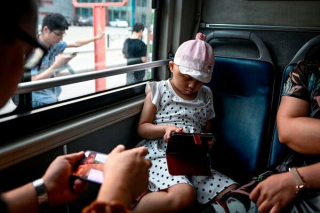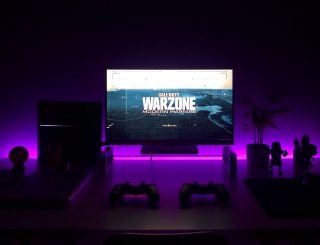In what’s probably the biggest tech news to come out this year, China has cracked down on teen tech addiction by restricting online gaming services provided to young gamers.
Under the new rule, users under the age of 18 will only be allowed to spend an hour online playing games, from 8 pm to 9 pm, on Fridays, weekends, and holidays, according to the official Xinhua news agency.
The new move is intended to address youth gaming addiction. In fact, the state media once accused the gaming industry of peddling “spiritual opium”.
Teen Tech Addition is Spiritual Opium
Gaming revenue is one of China’s profitable sectors. However, this doesn’t mean that the powers in charge are happy with it. In fact, the new rules are the first time that the Chinese government has cracked down on tech use in the country, and it’s actually been a long time coming.

Credit:Wang Zhao/Agence France-Presse — Getty Images
In 2019, the authorities limited the amount of time young people could spend playing games online, stating that they weren’t allowed to exceed 90 minutes of gaming during the week.
This past August, a Chinese newspaper called out the gaming industry, referring to it as spiritual opium and stating that “No industry or sport should develop at the price of destroying a generation,”, citing that video games can divert attention from school and family and cause nearsightedness. The article went further to single out gaming company Tencent, who are also the owners of one of China’s most popular games, Honor of Kings.
Suffice to say, the article wasn’t the best publicity for the company, as its share prices fell sharply. As such, Tencent vowed to help curb the time children and teenagers spent playing their games, and they even referenced the facial recognition function they released this past July. The function is meant to catch children who are secretly pretending to be their parents so that they can bypass the government’s curfew for underage gamers.
What are the dangers of over-gaming?
It’s clear that the Chinese government is concerned, to say the least, about the influence of gaming and pop culture can have on the younger generation. Just last week the government made plans to mandate teen celebrity worship and fan clubs as they feel that celebrities’ pursuit of online followers was “warping youths’ value.”
Now, despite how one may feel about the Chinese government’s stance on popular culture, they’re certainly not wrong about the dangers of tech addiction.

Photo by Fábio Silva on Unsplash
A study published last year in Developmental Psychology found that teens who develop gaming disorders are more anxious, aggressive, depressed, and shy.
In 2018, the World Health Organization classified Gaming Disorder as a mental health disorder. The symptoms include disruption to daily activities, such as school or work, due to video gameplay. People might even fail to stop playing games, no matter how hard you try to quit.
However, this doesn’t mean that all gaming is bad.
“I really do think that there are some wonderful things about video games,” said Sarah Coyne, lead study author. “The important thing is to use them in healthy ways and to not get sucked into the pathological levels.”
How can teens game safely?
Granted, you may not want to adopt China’s gaming ban for your home. However, there are other ways to protect your child’s health. Internet Matters recommends the following:
- Recognize when they’ve been playing too much ( if they’re tired or irritable)
- Encourage them to take breaks after 45 minutes of gaming
- Set boundaries and agree on which games they can and can’t play. You should get into the habit of reviewing the privacy settings on their accounts.
- Play the games yourself so you at least know what they’re exposing themselves to
Want to know more?
As a parent, you want to make sure that your child lives the best life possible. That said, you’d be surprised just how important nutrition is to a teen’s mental health.
References
Coyne, S. M., Stockdale, L. A., Warburton, W., Gentile, D. A., Yang, C., & Merrill, B. M. (2020). Pathological video game symptoms from adolescence to emerging adulthood: A 6-year longitudinal study of trajectories, predictors, and outcomes. Developmental psychology, 56(7), 1385–1396. https://doi.org/10.1037/dev0000939





![women [longevity live]](https://longevitylive.com/wp-content/uploads/2020/01/photo-of-women-walking-down-the-street-1116984-100x100.jpg)









